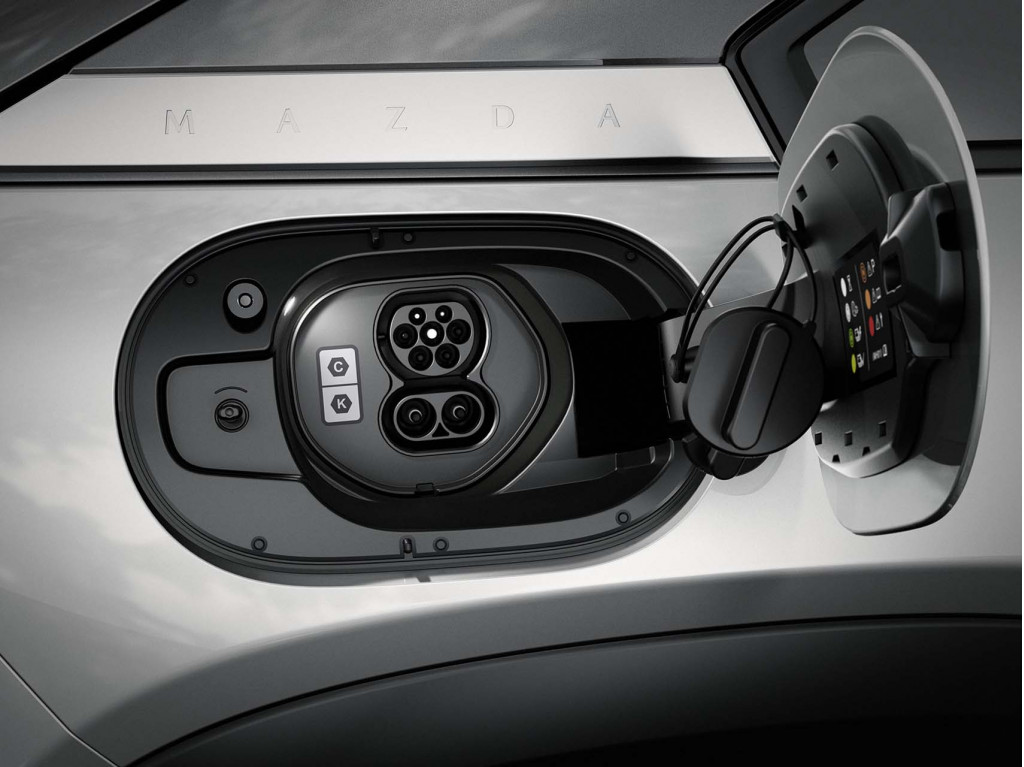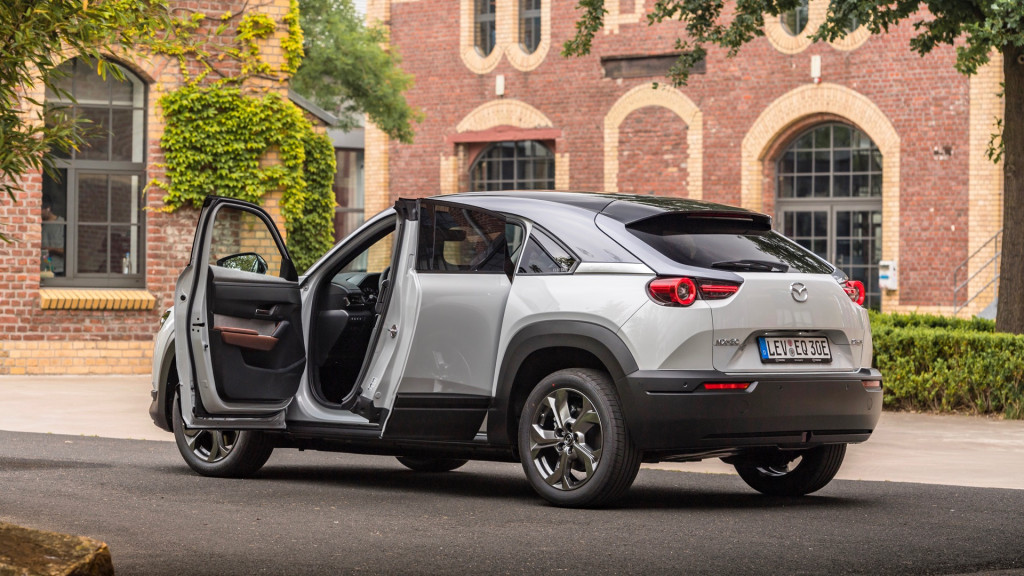Mazda is now aiming to make EVs account for as much as 40% of its global sales by 2030, and plans to introduce a new hybrid system before then, according to an update of the automaker's medium-term business plan.
"We estimate Mazda’s EV ratio in global sales to rise to a range between 25% and 40% as of 2030," a company press release said. Mazda in 2021 said that it expected EVs to make up 25% of its global sales by decade's end, with some built on a scalable dedicated EV platform set to arrive around 2025, called Skyactiv EV.

2022 Mazda MX-30
Mazda previously said it also wanted its entire lineup to have some degree of electrification by 2030. It reiterated that goal in its latest announcement, adding that a new hybrid system is in development. The automaker didn't provide any technical details, but said this hybrid system would arrive ahead of "the full-fledged launch of battery EVs" and possible investments in battery production to support them.
Mazda recently rolled out some hybrids in Europe, although borrowing tech from Toyota and marketing it under a "full self-charging" spin. But the automaker recently announced a series of agreements with suppliers to develop and manufacture "electric drive units"—composed of a motor, inverter, and reduction gear—that indicates a desire to bring more of this tech in-house.

2022 Mazda MX-30
While based on global sales, Mazda's 40% EV goal aligns with the Biden administration's policy for the United States, although the administration's EV plan an "aspiration" to hit 50% EVs by 2030.
Mazda doesn't exactly have a strong foundation to build on for U.S. EV sales. Its first U.S. plug-in vehicle, the Mazda MX-30, has a 100-mile EPA range, although it is set for a range-extender version soon. Prior to that, Mazda had been looking to emphasize diesel in the U.S. over hybrids and EVs.
